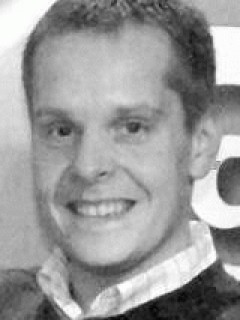First, let me set the scene. I’ve been working for WDB Brands - the brewing division of Wolverhampton and Dudley Breweries, home of such brands as Marston’s Pedigree, Banks’s and Mansfield Beers - for seven years in total. The last two have been as a market analyst, focusing on quantitative research and reporting mainly on brand performance.
Like most industries, the drinks market is constantly changing. We realise that to stay ahead of the game it’s essential to respond to consumer needs, hence superior new product development (NPD) becomes a crucial part in our future.
We need to know whether we will deliver what our customers really want and, unfortunately, we’re not psychic. So, although we use agencies for research we also needed to develop our own qualitative skills - and I fitted the bill. Colleagues from retail development had attended the AQR course in previous years and recommended it strongly.
My course objectives were threefold: to understand what qualitative research is all about; to carry some out for the first time and to learn about available techniques and when best to use them.
Did I achieve my objectives? Well, you decide.... First impressions: good location, great facilities, nice people, but what on earth is a ‘Quallie’, a ‘depth’ and ethnography? It’s time to learn the lingo.
My initial concerns were put to rest as soon as Caroline Dunlop had finished the introductory talk. Then it was time to step up a gear, with presentations coming thick and fast, taking us through each step of the process.
It was quite tough to absorb all the information in time to put it to practical use, but we found ourselves sitting down at the end of day one with discussion guides at the ready and the bar still serving. Day two was no slower, focus groups followed by time for analysis and interpretation.
As a group of novices we were quite daunted, given the time constraints placed on us, but our tutor, Sandrine, ensured we stayed on track providing timely advice and assistance. Day three, presentation time... enough said.
What would be most useful? The case study proved the learning zone. The feedback on my moderation let me know my starting position and which areas I need to improve on. You also got a reality check on the amount of time necessary for certain aspects of a study.
There was raft of information from the presentations, which is great to refer back to. I’ve already started putting some of it into use on new research projects, but of course that’s as much as I can tell you here. Finally, all the course tutors seemed experienced and very approachable. I’d feel comfortable asking for their advice in the future.
Anything for the future? When moderating a group of four ‘quallies’ who you already know, it’s quite strange to treat them as respondents. I’m claiming this as my excuse for asking the question ‘What would influence your purchase?’ as opposed to ‘Why would you buy it?’
Maybe it would be useful to bring a group of respondents in ‘off the street’, recruited to suit the criteria set by the case studies. This could add a touch more realism to the course itself and, in theory, they would know their topic inside and out.
This could have a significant impact on the way that analysis and interpretation is approached. Alternatively, brief the course attendees a week in advance on what they are expected to talk about as respondents so that they are prepared.
Final thoughts. I have to confess, I slept for days after the course. When ‘sleeping beauty’ finally awoke I sat back and reflected on what I got out of it. The learning was only half of the deal. It was amazing how a group of strangers managed to gel as if they’d known each other for years.
I met a lot of good people who work across many businesses within qual. Contacts like that for someone in my position are priceless and I look forward to any future rendezvous. In the meantime watch out Joe Public... I’m on my way!


